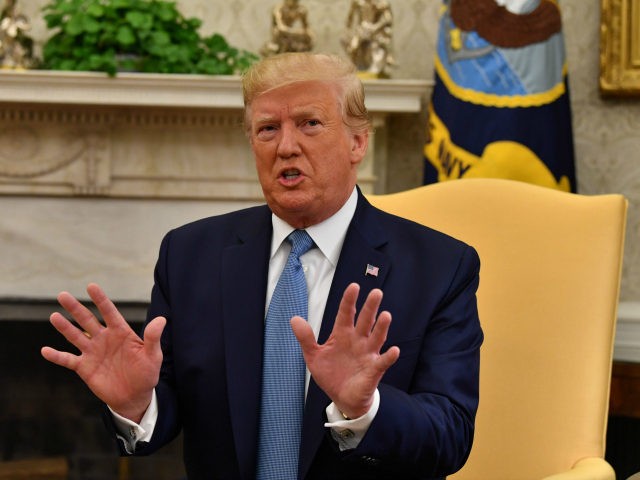President Donald Trump will curb companies’ hiring of many foreign visa workers — including H-1B graduates — during the next few weeks, according to a report in the pro-migration Wall Street Journal.
“The president’s immigration advisers are drawing up plans for a coming executive order, expected this month, that would ban the issuance of some new temporary, work-based visas,” said the May 8 report:
The order is expected to focus on visa categories including H-1B, designed for highly skilled workers, and H-2B, for seasonal migrant workers, as well as student visas and the work authorization that accompanies them.
Though the scope of the order hasn’t yet been decided, administration officials said it could range from suspensions of entire visa categories to the creation of incentives to hire Americans in industries hardest-hit by layoffs.…
“If we are taking actions on immigration that help improve public health, help improve the economy, help improve jobs, it’s a vindication or validation that the president was right since day one,” a senior Department of Homeland Security official said.
The executive order would expend the labor supply reforms the president announced on April 22.
The Wall Street Journal report comes one day after several Republican senators and House members urged Trump to reduce the visa worker programs.
“That suspension should, at a minimum, include H-2B visas (nonagricultural seasonal workers), H-1B visas (specialty occupation workers), and the Optional Practical Training (OPT) program (extension of foreign student visas after graduation),” the letter said, continuing, “We also urge you to suspend the EB-5 immigrant visa program, effective immediately.
The letter was signed by Sens. Tom Cotton (R-AR), Josh Hawley (R-MO), Chuck Grassley (R-IA), and Ted Cruz (R-TX), as well as Reps. Paul Gosar (R-AZ), Lance Gooden (R-TX), Mo Brooks (R-AL), and Matt Gaetz (R-FL).
Each year, companies keep a workforce of roughly 1.5 million white-collar visa workers in good jobs, along with at least 400,000 blue-collar visa workers in seasonal jobs.
The white-collar visa workers are extremely important to Wall Street investors and Fortune 500 CEOs because they raise stock prices by lowering salaries for college graduates.
They are defended by investor and business groups, including George W. Bush’s organization and by FWD.us, an advocacy group formed by Mark Zuckerberg:
Since Trump’s declaration of emergency on March 13, companies have continued to extend visas for their foreign workers.
For example, Tim Cook’s Apple Inc. has asked the Department of Homeland Security (DHS) to extend the visas of 130 foreign workers. The job titles include “HR business partner,” market research analyst, software development engineer, radiofrequency test engineer, data scientist, producer manager, engineering project manager, professional services consultant, as well as producer and creative writer.
A series of grassroots groups formed by U.S professionals, such as U.S. Tech Workers, as well as the established immigration reform group, the Federation for American Immigration Reform, oppose the programs.
U.S. journalists rarely report on the economic impact of the visa workers on white-collar American graduates.
Polls show the public is overwhelmingly against the welcome for foreign workers. Many of those workers get the jobs from other Indians working at U.S. companies, usually without regard to job searches by each year’s cohort of 800,000 white, Hispanic, Asian, and black skilled college graduates.
A recent Washington Post poll showed 65 percent of all adults said they supported “temporarily blocking nearly all immigration into the United States during the coronavirus outbreak.” The shutdown is backed by 69 percent of Hispanics, 60 percent of people with college degrees, 68 percent of people with income below $50,000, and 62 percent of people with income above $100.000. That Americans-before-migrants poll echoed prior polls by Ipsos and Rasmussen, as well as polls from 2017:

COMMENTS
Please let us know if you're having issues with commenting.